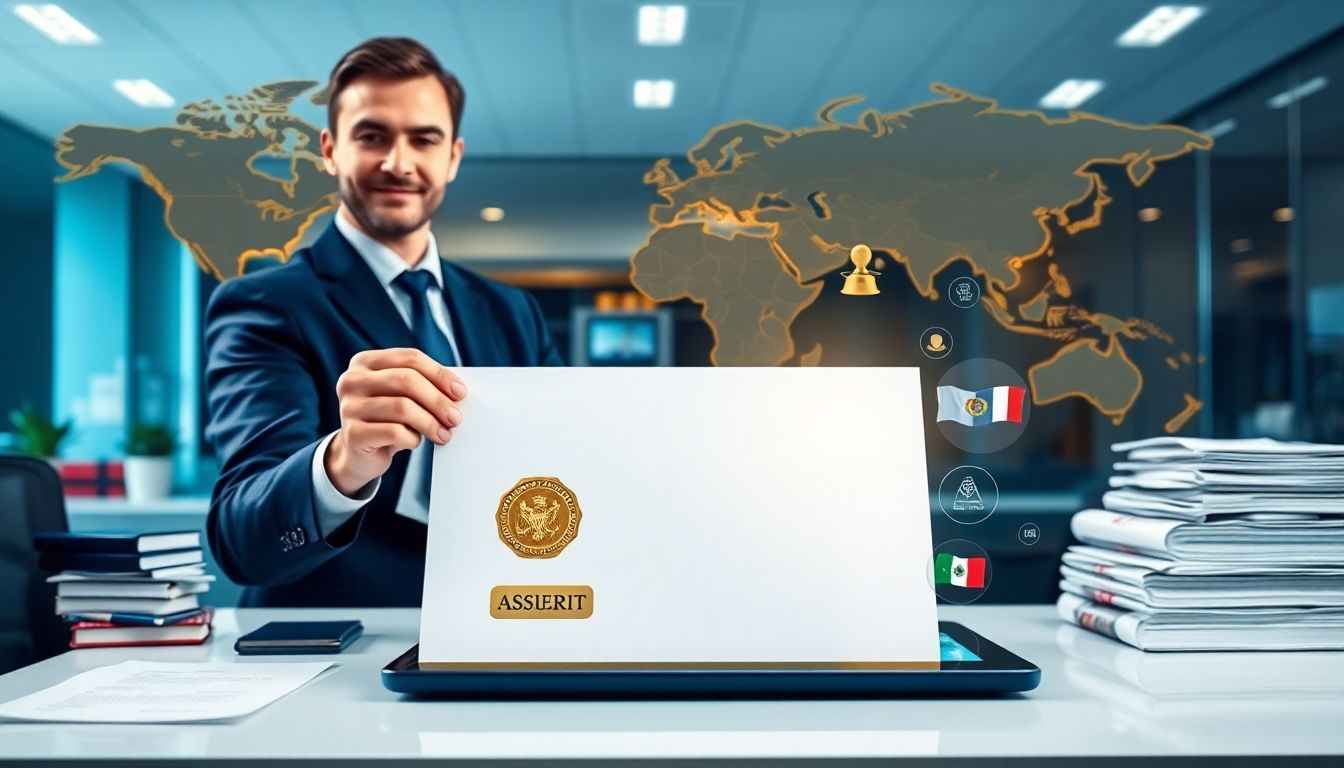
Streamlining Global Document Authentication: An Introduction to Apostille Services
Introduction: Simplifying International Documentation in a Globalized World
As the world becomes more connected, more people need to handle documents across borders. Whether you’re doing international business, studying abroad, or handling legal matters, authenticating your papers is crucial. But dealing with different countries’ rules can be confusing and frustrating. This is where apostille services come in—they make the process much simpler. They help you get your documents recognized worldwide quickly and smoothly.
What is an Apostille and Why It Matters in International Transactions
Definition and Purpose of an Apostille
An apostille is a special certification that proves a document is real and valid in another country. It’s like a stamp of approval that says, “Yes, this document is authentic.” The official definition comes from the Hague Convention of 1961, which created a standard way to recognize documents worldwide.
The Role of the Hague Convention
The Hague Convention is an international treaty that many countries agree on. Its main goal is to make document recognition easier across borders. Countries that are members of this treaty accept apostilles without needing extra steps. This includes most of Europe, North America, and many other regions. If a country is part of the convention, your documents can be authenticated by an apostille.
Types of Documents Eligible for Apostille
Almost any official paper can get an apostille if needed for international use. Common examples include:
- Birth certificates
- Diplomas and transcripts
- Power of attorney forms
- Business licenses and records
- Marriage certificates
These are often required for legal cases, enrolling in schools, or opening business accounts abroad.
The Process of Obtaining an Apostille: Step-by-Step Guide
Preparing Your Documents for Authentication
Start by making sure your documents are complete and signed. Some might need notarization, especially powers of attorney or affidavits. Double-check for missing signatures or errors that could cause delays. Avoid common mistakes like submitting outdated papers or unofficial copies.
Submitting Documents to Competent Authorities
Find out which agency handles apostilles in your country. Usually, it’s the Secretary of State or a similar office. Many countries now offer online options, while some require in-person visits or mailing. Follow the instructions carefully to avoid rejections.
Timeframes and Costs Associated with Apostille Services
Processing times vary by country. Some jurisdictions do it within a few days, while others may take a couple of weeks. Fees depend on the document type and method of submission—online, mail, or in person. Expect costs from $20 to $100 per document.
Tips for a Smooth Application
Verify exactly what documents are needed beforehand. Cross-check with official guidelines or consult a professional if unsure. Once your apostille is ready, inspect it carefully to confirm all information is accurate. Mistakes could mean re-application, wasting time and money.
Benefits of Using Professional Apostille Services for Global Document Authentication
Streamlining and Speeding Up the Process
Professional providers handle all the paperwork and coordinate with authorities. They cut down your waiting time and reduce errors. Even complex cases are managed smoothly, so you get your documents faster.
Ensuring Legal Compliance and Validity
Using experts means you’re less likely to get a rejected or invalid apostille. They stay up-to-date with rules and make sure every step meets legal standards. This gives you confidence your documents will be accepted abroad.
Cost-Effectiveness and Efficiency
Attempting to do everything yourself might sound cheaper, but it often takes more time and causes mistakes. Professionals save you money by preventing re-submissions and delays. For example, a business case study showed companies saved days and hundreds of dollars by outsourcing the process.
Expert Recommendations and Industry Best Practices
Legal experts agree that professional services offer peace of mind. They recommend trusting experienced providers who understand the nuances of document authentication. This way, your business or personal paperwork clears customs with less fuss.
Common Challenges and How to Overcome Them
Recognizing and Avoiding Fake or Invalid Apostilles
Fake apostilles are a real risk. Always verify the source—check for official stamps, seals, and signatures. Confirm with the issuing authority if needed. Beware of too-good-to-be-true offers that may be scams.
Handling Non-Member Countries or Non-Standard Documents
Some countries are not part of the Hague Convention. For these, you’ll need additional steps like consular legalization. Also, unusual documents may require extra certification or translation. Understanding these differences saves you time and trouble.
Dealing with Lost or Damaged Documents
If your papers get lost or damaged in transit, contact the issuing agency immediately. Re-application might be necessary, so keep copies of all submissions. Consider tracking services when mailing important items.
Staying Updated with Changing Regulations
Rules around document authentication change frequently. Regularly check official government websites or join updates from professional apostille services. Doing so prevents surprises and keeps your process legal.
Future Trends in Global Document Authentication and Apostille Services
Digital Apostilles and E-Authentication
New technologies are making authentication faster and safer. Digital apostilles, which use electronic signatures and blockchain, are becoming more common. They let you get certified documents almost instantly, reducing paper piles.
Increasing International Cooperation and Standardization
More countries are adopting the Hague Convention or similar standards. This moves us closer to a world where you can authenticate documents with just a few clicks, no matter where you’re located.
Impact on Global Business and Education Sectors
Efficient document authentication makes it easier for companies to expand internationally. Students benefit too, with quicker enrollment processes. Streamlined processes open doors and speed up global opportunities.
Conclusion: Key Takeaways for Effortless Global Document Verification
Understanding what apostille services are and how they work is key to handling international documents easily. They save you time, money, and frustration by simplifying complex legal steps. Hiring professional providers assures your papers meet all requirements, avoiding costly mistakes. Whether you’re expanding a business or studying overseas, using experts guarantees your documents are ready to go. Take control of your global paperwork today by trusting the right apostille service providers—your shortcut to smooth international recognition.
